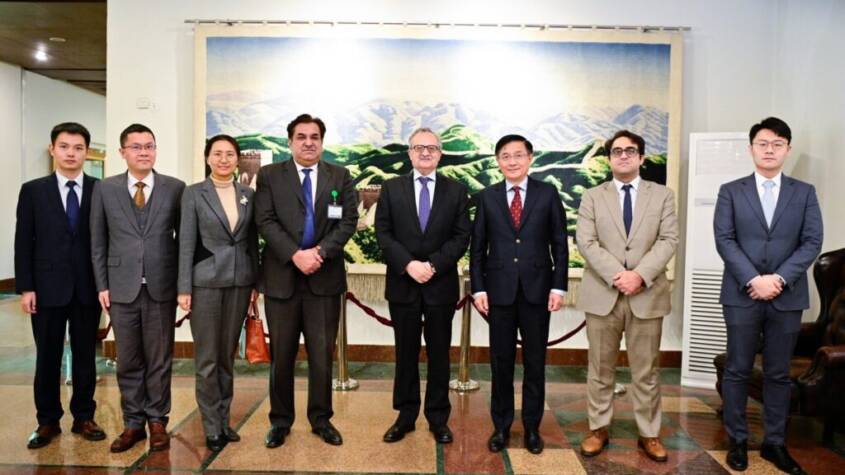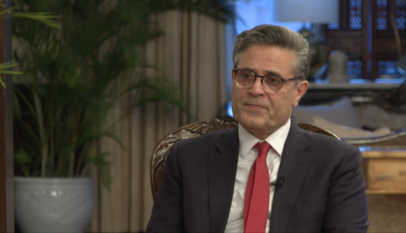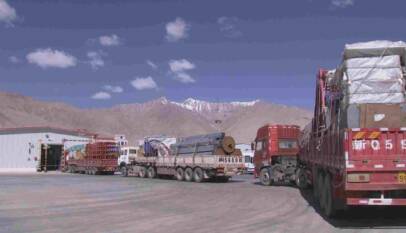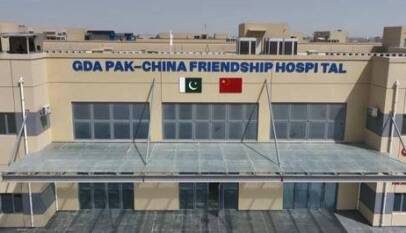China, Pakistan discuss situation in Afghanistan, regional collaboration
China’s special envoy on Afghanistan, Ambassador Yue Xiaonyou, met with Pakistan’s Foreign Secretary Syrus Qazi to discuss mutual interests. The meeting follows China’s controversial acceptance of the Taliban-appointed ambassador’s credentials, sparking debates about China’s recognition of the Taliban regime. Despite UN and Western concerns about the Taliban’s commitments to human rights, the US and other Western countries appear to be softening their stance. India reportedly plays a role in helping the Taliban gain recognition, though obstacles exist. A joint statement emphasized both nations’ commitment to a stable Afghanistan, but sources reveal Pakistan’s skepticism about China’s unilateral decision. China remains concerned about the East Turkestan Islamic Movement (ETIM) in Afghanistan, while the US considers reopening its consulate in Kabul, contingent on the Taliban meeting international commitments. Pakistan maintains a hard stance, demanding Taliban action against the Tehreek-e-Taliban (TTP) and ensuring Afghan soil isn’t used against Pakistan, but the Taliban is reluctant to comply.
Days after China formally accepted a full time Ambassador of Afghanistan under the Taliban regime, President Xi Jinping’s close aide travelled to Islamabad on Friday apparently to take Pakistan into confidence.
The Chinese president earlier this week accepted the credentials of Bilal Karimi, a Taliban-appointed ambassador to China. The move was seen as tantamount to recognition of the Afghan Taliban government by Beijing.
No country has yet officially recognised the Taliban government since they returned to power in August 2021. But China became the first country to accept its full-time ambassador.
Though China has not clarified, diplomatic sources and observers believe that the move was a “tacit recognition” of the Afghan Taliban government, which is, otherwise, struggling to convince even neighbours for recognition let alone the Western countries.
Following the development, Chinese Special Envoy on Afghanistan Ambassador Yue Xiaonyoung held meetings with Pakistani authorities, including Foreign Secretary Cyrus Qazi and Additional Foreign Secretary, Afghanistan and West Asia, Ambassador Rahim Hayat Qureshi.
A statement issued by the Foreign Office said that both sides underscored their commitment to a peaceful and stable Afghanistan and emphasised the need for enhanced coordination for regional stability. “They also underlined the crucial role of neighbouring countries of Afghanistan for a peaceful, stable and prosperous region,” it added.
No further details were provided but sources said that the current Chinese move was also part of the discussions. China took Pakistan into confidence about its decision.
The sources said that China apparently took a “solo flight” in a disregard to the regional countries’ earlier understanding. They added that regional countries, particularly the immediate neighbours of Afghanistan, decided that the decision to recognise the Taliban government would be taken with consensus and collectively.
But, the sources continued, China’s close engagement with Taliban government could enhance its leverage that might help Pakistan in the long-run. China might have accepted a full time Taliban ambassador but the sources said that its concerns regarding Afghanistan being used by terrorist outfits remained.
China is particularly worried about the East Turkestan Islamic Movement (ETIM), which Beijing considers a terrorist outfit, activities in Afghanistan. A recent UN Monitoring Team report revealed that the Afghan Taliban relocated ETIM from Badakhashan to Baghlan province.
However, the report noted that the ETIM was active in various parts of Afghanistan and busy recruiting young people. That was the reason that Chinese move to inch a step closer to recognise Taliban came as a surprise for many, including Pakistan.
The international community has set certain benchmarks before the Taliban were recognised. Those benchmarks include the inclusive government, permission for girls to go to school and women for work and on top of it no terrorist group would be allowed to operate from Afghan soil.
But it seems major players have adopted a more pragmatic approach compelled by their respective strategic interests. The US is also cautiously exploring the possibility of reopening its consulate in Kabul, according to the new strategy approved by the State Department.
The US, however, clarified that reopening the diplomatic mission in Kabul did not mean the recognition of the Taliban government.
The State Department, in its strategy, stuck to Washington’s demands that the Afghan Taliban would have to fulfil commitments, including formation of inclusive government, allowing girls education, women to work and not allow Afghan soil to be used against by terrorist groups and pose a threat to US and its allies.
Gwadar Pak-China Friendship Hospital pioneers laser-assisted bladder stone surgery
China-aided Gwadar Pak-China Friendship Hospital has debuted in conducting an operation to…









